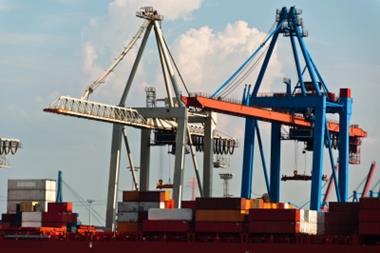Pandemic is exacerbating trends such as cargo crime, man-made disruptions, and political protests, which all threaten supply chain resilience in 2021
Regulatory changes, food fraud, and the ongoing effects of COVID-19 are the primary causes of supply chain disruptions, according to a report from BSI. The standards body predicts the following trends will likely dominate the global supply chain throughout the year ahead:
- Ongoing challenges from COVID-19 creates new threats for organisations in the coming months;
- Economic hardship increases the risk of labor exploitation, human rights violations, and stowaway smuggling;
- Drug smuggling trends remain consistent, however, means and methods will continue to change and evolve due to COVID-19;
- Food fraud and safety will continue to challenge supply chain resilience, and
- Regulatory changes will test organisational adaptability.
“COVID-19 will certainly have latent effects on organisational resilience throughout 2021, directly and indirectly shifting the way organisations do business,” said Jim Yarbrough, Global Intelligence Program manager at BSI.
“However, several other challenges, including increased regulation of supply chains and forced labour, are poised to challenge organisational resilience and business continuity as the world continues to grapple with the lingering impacts of the pandemic.”
Ongoing challenges from COVID-19
Many of the COVID-19 related challenges that organisations faced in 2020 forced them to adjust in novel ways to maintain their supply chain continuity, integrity, and overall resilience.
Yet, at the same time, the spread of the virus seemed to merely exacerbate historical trends and known risks such as cargo crime, man-made disruptions, and political protests, which all remain as risks to supply chain resilience in 2021.
BSI intelligence noted an increase in thefts from facilities in Africa and Europe and an overall increase in stolen medical supplies last year.
However, despite these changes noted in the BSI incident data, some trends remained the same, such as in Latin America, which continued to experience a high number of hijackings, and the United States and Canada saw consistent trends in the targeting of trucks parked in vulnerable locations.
As the spread and impact of COVID-19 reduces, cargo theft trends are expected to return to pre-pandemic levels, with certain types of goods losing value again, such as personal protective equipment (PPE), and the resumption in trade leading to more movement of vehicles, restoring thieves’ opportunities to again strike this transportation mode.
Food fraud and safety an ongoing challenge
The COVID-19 pandemic initially led to panic buying, stockpiling, and overall disruption to food supply chains in well-developed countries; while these countries were able to manage the problem, it did expose flaws in global food supply chains that criminals could use to introduce fraudulent food into legitimate supplies.
These same vulnerabilities existed in food supply chains prior to 2020 and continue to exist now, indicating that food organisations will continue to be susceptible to fraud in 2021 and beyond.
Part of the challenge lies in the globalisation of food supply chains, which sources inputs from an array of countries that may or may not have a robust framework and enforcement apparatus available to combat fraudulent practices.
According to a 2020 report from the Food and Agriculture Organization of the United Nations, “trade in food and agriculture has more than doubled in real terms since 1995. Emerging and developing countries have become active participants in global markets, and they now account for about one-third of global trade.”
Given the significant level of global food shortages, BSI found that the risk of food fraud is on the rise. Specifically, alcohol and tobacco products saw a global increase in thefts and counterfeiting, given their increasing value and related shortages, as consumption rose while people were in lockdown.
Finally, issues of food safety continue to be of paramount concern, as the spread of COVID-19 last year significantly affected government capacity to enforce food safety regulations, which means that some foods may not have been checked as thoroughly.
Regulatory changes test organizational adaptability
In 2020, governments passed a range of regulatory and legislative measures that will continue to affect supply chains and are likely to challenge organisational resilience by creating new compliance measures aimed at increasing sustainable sourcing and improving supply chain security.
It is almost certain that organizations will have to increasingly scrutinise the supply chain for susceptibility to labour violations, as a number of governments made a concerted effort to address this issue.
As such, these new regulations pertaining to security could have impacts on business operations in 2021, underscoring the need for continuity planning.
Finally, in addition to regulation aimed at eliminating the use of forced labor in the supply chain, regulatory developments surrounding sustainable sourcing and deforestation, as well as cargo and port security, will impact organisations throughout the year ahead.




















No comments yet